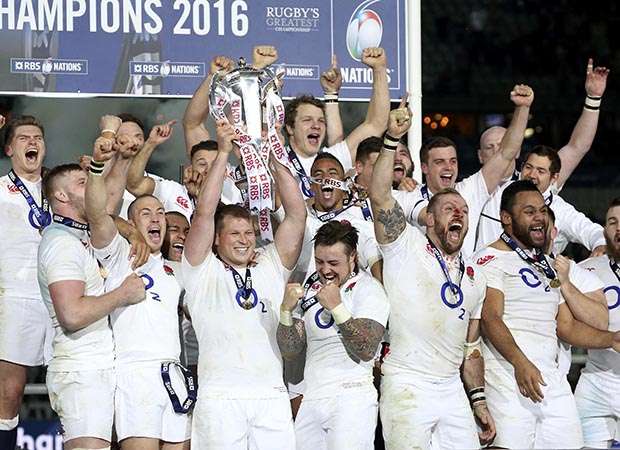 The Six Nations kicking off this weekend will achieve another global first in world rugby – the £1m bonus point.
The Six Nations kicking off this weekend will achieve another global first in world rugby – the £1m bonus point.
A title won not by a Grand Slam but by a single point will be worth marginally more than £1m to the champions by making a difference in prize money between £5m and £3.9m.
The same applies to the bottom of the table. In the event of the scrap to avoid the wooden spoon being settled by a bonus point, that point will be worth more than £500,000 to the team finishing fifth. No bonus points will ever have been as valuable in World Cups or European club tournaments as they will be over the next seven weeks.
Their introduction to the oldest annual international event on the sporting planet coincides with prize money at an all-time high. The Rugby Paper understands that this year's pot will reach £16.5m, an increase of around ten per cent on last year.
The money is doled out on a sliding scale based on final position.
This year, for the first time, the bottom country will earn a seven-figure sum as some comfort for propping up the rest. The winner will collect a minimum of £5m rising towards £6.5m as extra reward for a Grand Slam.
After years of rejecting the principle of bonus points, the first change to the tournament's scoring system is designed to stimulate a more attacking attitude. From an average of five-per-game at the start of the century, when the newly-arrived Italians suffered some landslide defeats, tries had dropped by 50 per cent as recently as four years ago.
Since then they climbed back towards 75, an all-time high for the five-round, 15-match schedule.
“We believe this initiative will enhance the competition for fans, teams, broadcasters and all of those for whom the Championship means so much,'' says Pat Whelan, Six Nations' chairman and former Ireland hooker.
Chief executive John Feehan, eager to ensure that bonus points do not disturb the tournament's ‘unique dynamic', says: “We are also conscious that we must reward try-scoring and an attacking style of play that will deliver more tries and greater rewards for fans and players alike.''
More tries will ensure that bonus points, as used in the Aviva Premiership and PRO12, passes their one-season trial but without any risk of devaluing a Grand Slam.
There have been eleven Slams since the Six Nations' inaugural season 17 years ago. England's clean sweep last year, their first since winning the World Cup in 2003, followed five by France (2002-2010), three by Wales (2005-2012) and one by Ireland (2009).
Three extra bonus points for a Grand Slam eliminate any risk of the winning team being overhauled for the title. Had the system been there in 2002, the Six Nations would have been in the embarrassing position of seeing a Grand Slam team finish second.
France won all five matches that year but England, despite losing 20-15 in Paris, would have pipped them to the title by virtue of a superior points-difference and try count. Bonus points would also have changed the course of history on two other occasions within the last ten years.
Ireland would have been champions in 2007 instead of France by virtue of a single bonus point, the losing one they would have been entitled to after Vincent Clerc's late winner in Dublin robbed them of the Slam.
Despite their record beating by Wales in Cardiff four years ago, bonus points would have had England crowned champions instead of their tormentors.
An analysis of the last ten Six Nations' reveals that only three try bonus points, for four or more per game, would have been claimed on average each season. Losing bonus points, from defeats restricted to seven points or fewer, would have been twice as many.
Scotland (17) and Ireland (13) would have gained most from the losing bonus, England (9) and Ireland (9) from the try bonus. Some 90 per cent of the try bonus points total over ten years would have been at the expense of Italy and Scotland.
PETER JACKSON


























